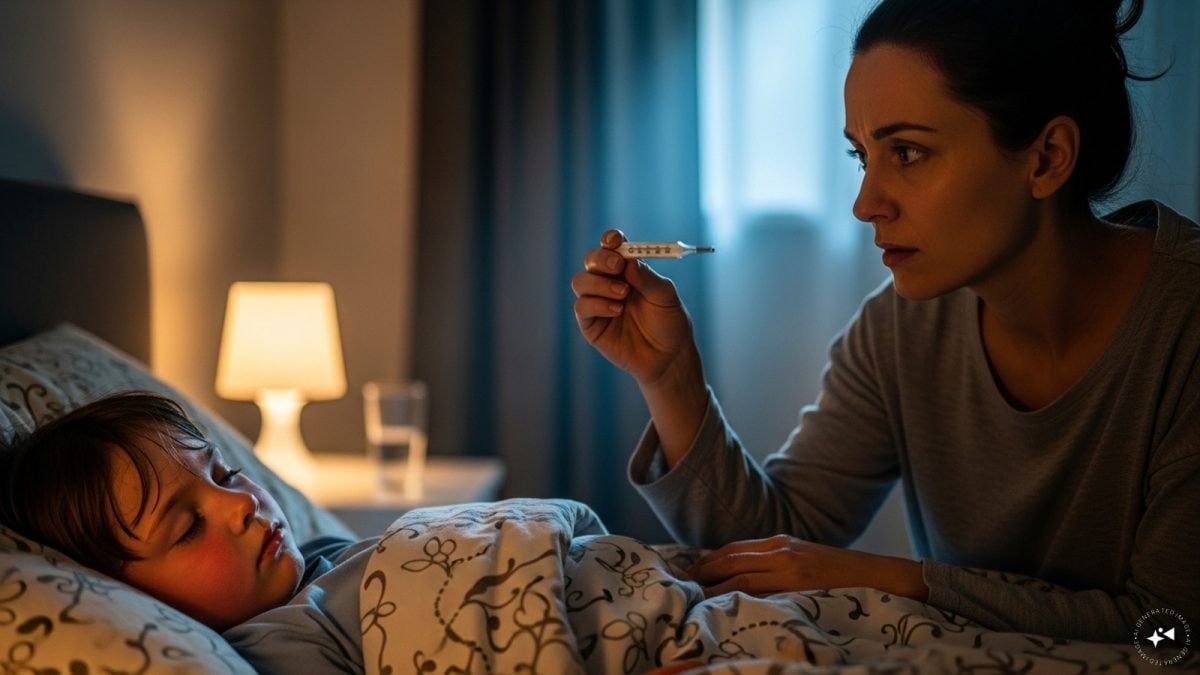Last Updated:
The risk of infection rises significantly among children during the monsoon. Parents must take special care and precaution to protect their kids in fluctuating temperatures.

Monsoon increases risks of viral, waterborne, and mosquito-borne illnesses in children.
The rainy season often brings relief from the heat, but for young children, it also marks the onset of viral and waterborne illnesses. The combination of fluctuating temperatures, humidity, and stagnant water creates the perfect breeding ground for infections like viral fevers, gastroenteritis, hepatitis A, malaria, dengue, and even conjunctivitis.
“The risk of infections rises significantly during this season, and parents need to be extra cautious with food, water, and hygiene practices,” said Dr. Sushmita Banerjee, Consultant Paediatric & Paediatric Nephrology, CMRI Kolkata.
Protecting Against Viral and Airborne Infections
Viral fevers, respiratory tract infections, and influenza are highly contagious and tend to spread in crowded spaces such as schools and playgrounds. To minimise risks, doctors recommend avoiding sudden temperature changes – like moving in and out of air-conditioned rooms – and limiting close contact with individuals who are sick.
“Children should be encouraged to wear masks in schools and crowded places and to wash their hands and face after returning home,” advised Dr. Ruchi Golash, Paediatrician, CMRI Kolkata. She also added that adults with a cough or cold should avoid interacting with especially vulnerable infants.
Preventing Waterborne Diseases
Waterborne infections such as typhoid, gastroenteritis, and hepatitis A are common during the monsoon. The best way to safeguard children is through food and water hygiene. “Preschool children should be given freshly prepared hot food and boiled water. Parents must also ensure that their children receive vaccines against typhoid, hepatitis A, and rotavirus as per schedule,” emphasised Dr. Banerjee.
Dr. Deepak Ugra, Paediatrician at Lilavati Hospital, Mumbai, further warned against street food and highlighted the importance of proper sanitation. “Safe drinking water, strict handwashing before meals and after outdoor play, and avoiding outside food are essential steps in prevention,” he said.
Guarding Against Mosquito-Borne Illnesses
Diseases like malaria and dengue surge during the rainy season, as stagnant water becomes a breeding ground for mosquitoes. “To protect children, ensure they wear light, long-sleeved clothes and use mosquito repellents or nets,” said Dr. Golash. Indoor cleanliness, discarding stagnant water, and spraying repellents can go a long way in keeping mosquito-borne illnesses at bay.
The Role of Nutrition and Immunity
Alongside preventive practices, building a child’s immunity remains crucial. The doctors stressed the importance of a balanced diet rich in proteins, fresh fruits, and vegetables containing vitamins A, C, E, and minerals like zinc. Adequate hydration, he added, helps reduce susceptibility to recurrent colds and fatigue.
Protecting children during the monsoon requires a multi-pronged approach: vaccination, good hygiene, mosquito control, and proper nutrition. With a few mindful practices, parents can ensure that the season of rains doesn’t turn into a season of illness for their young ones.
- Location :
Delhi, India, India








